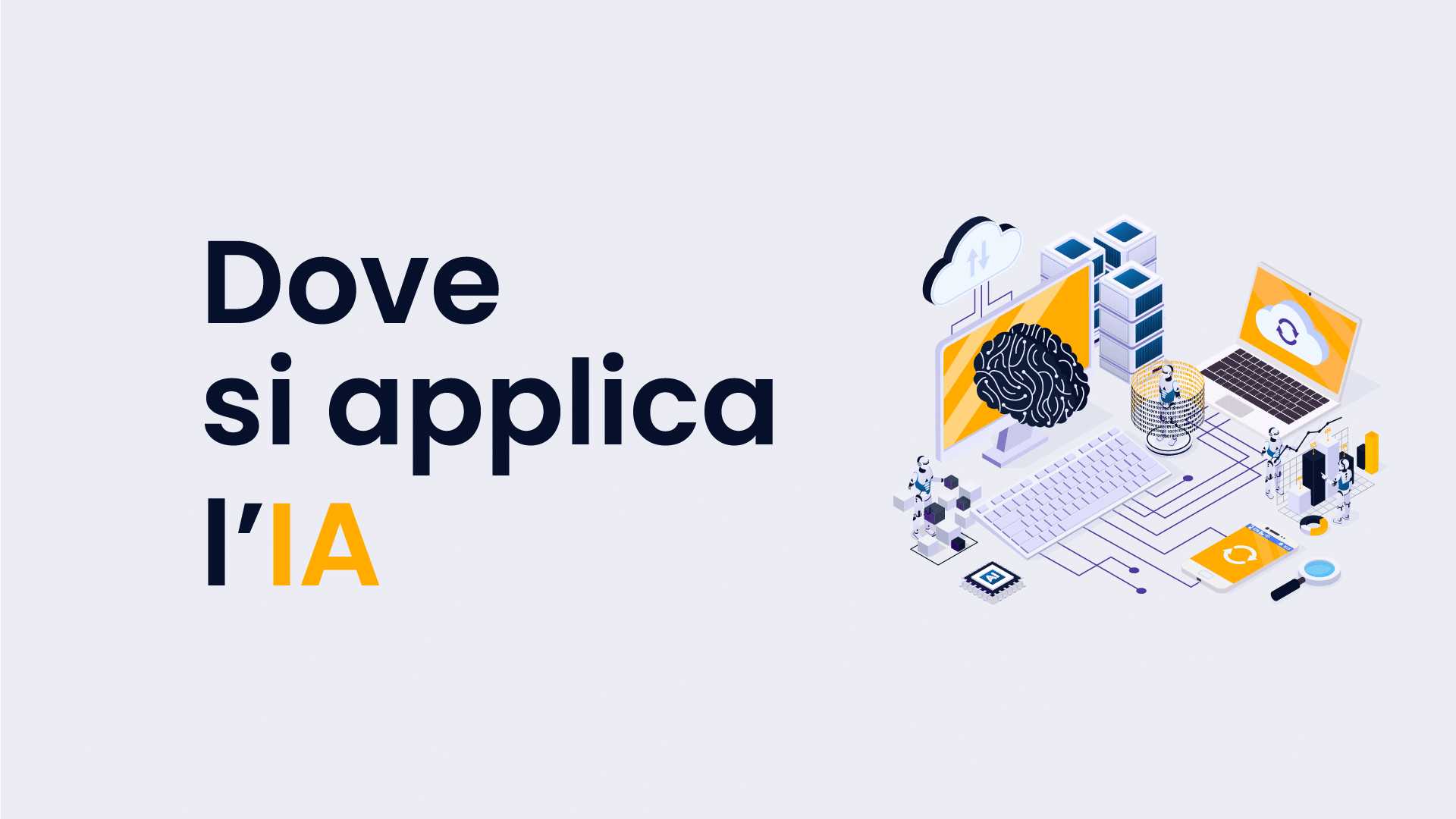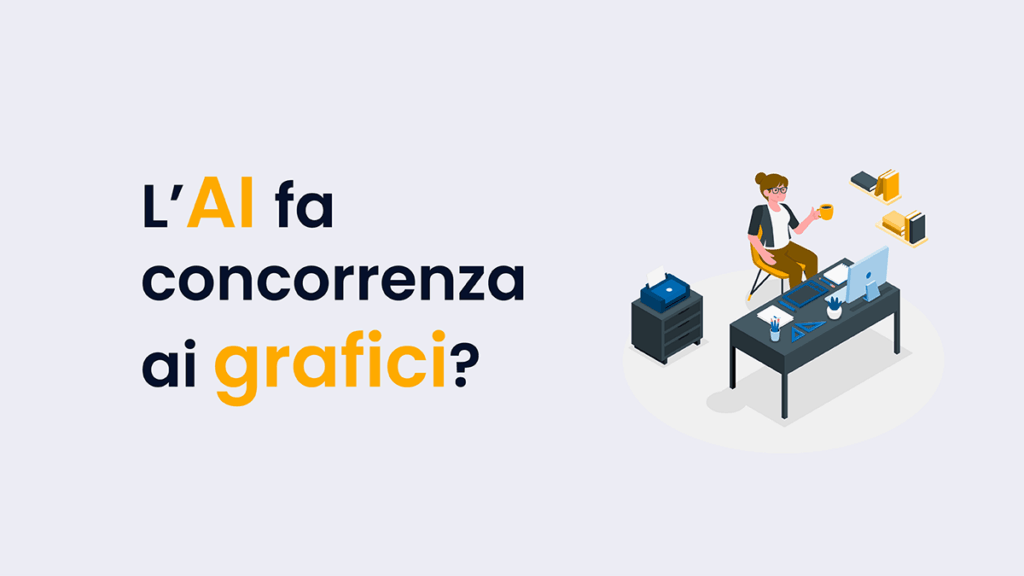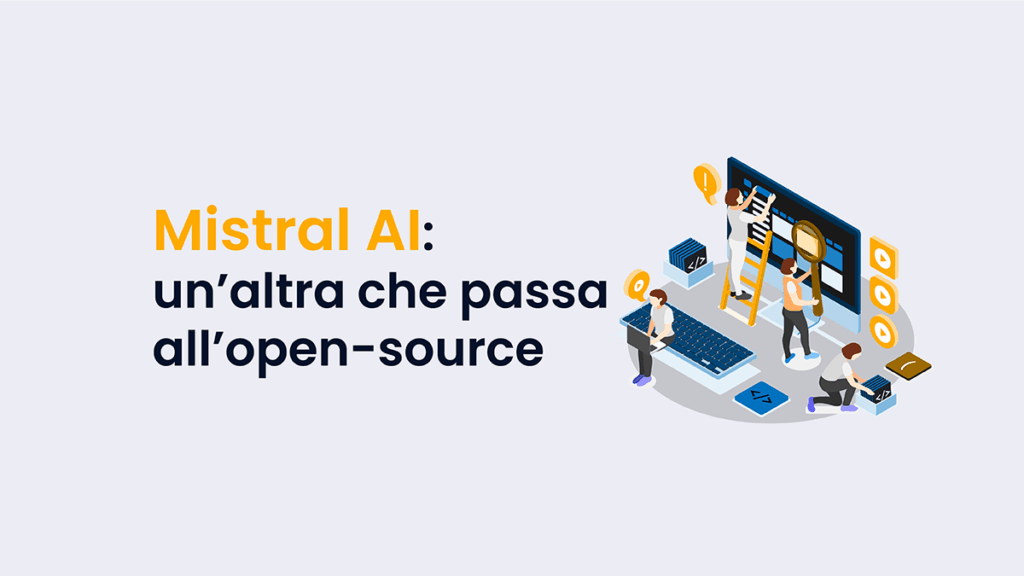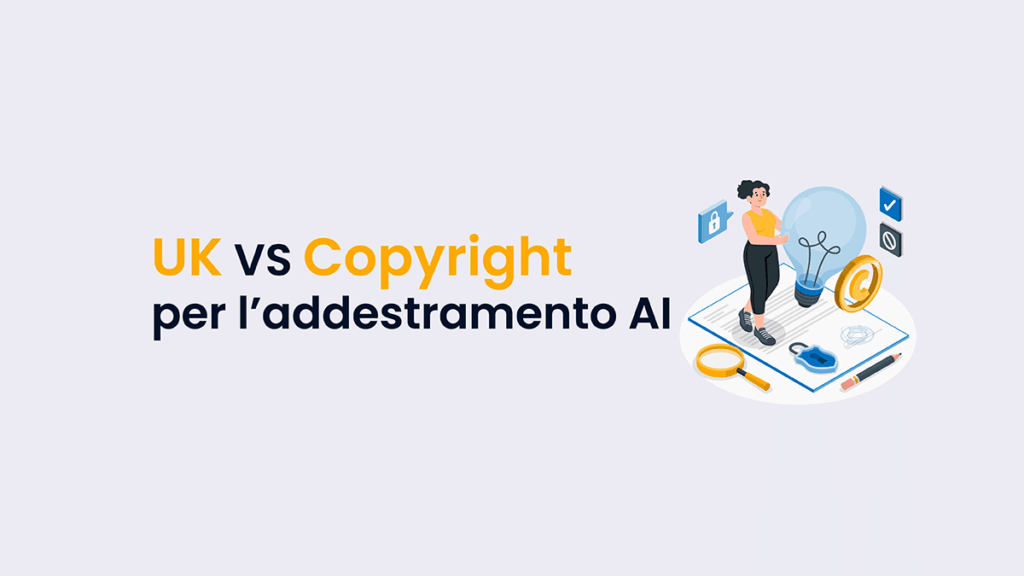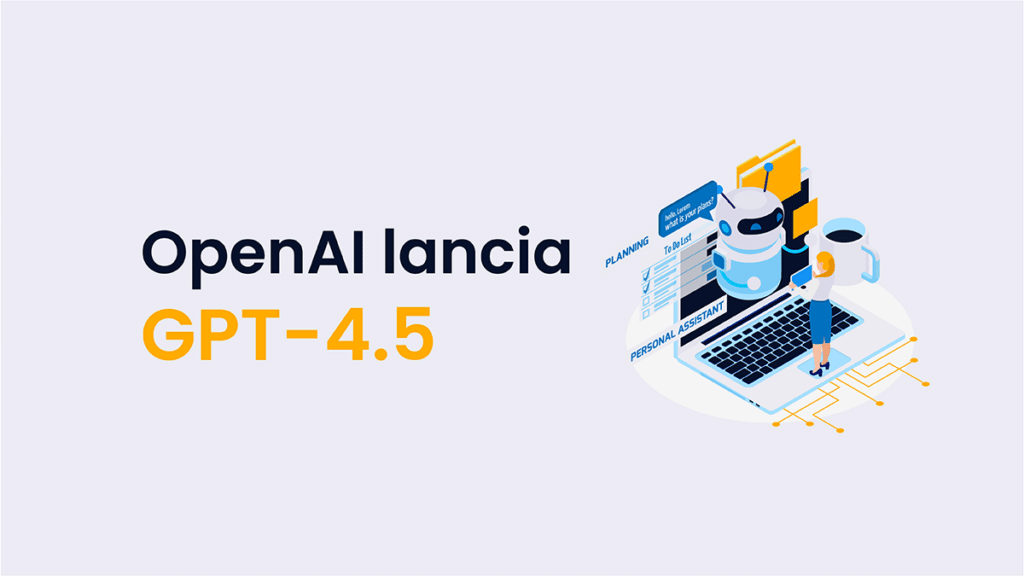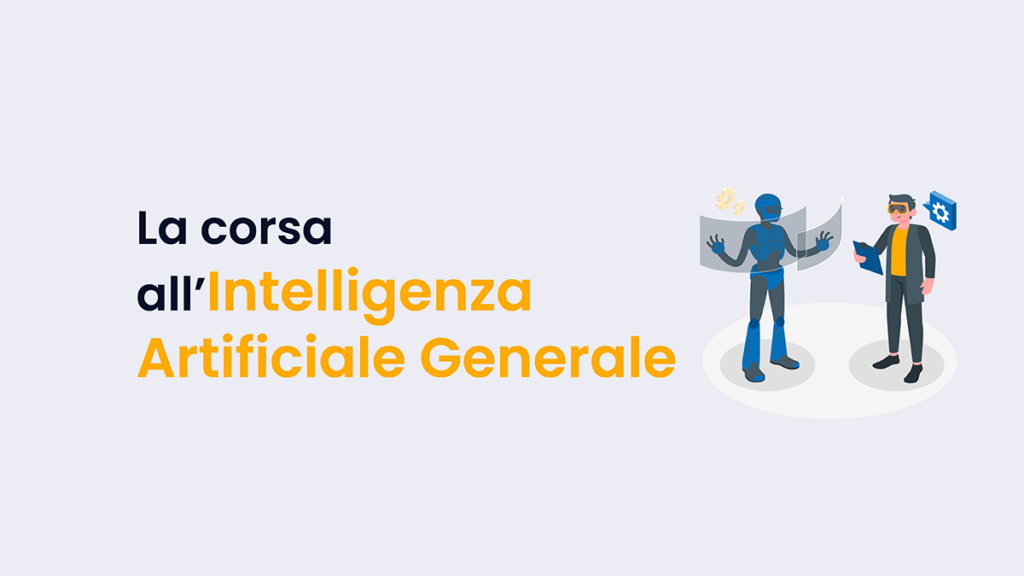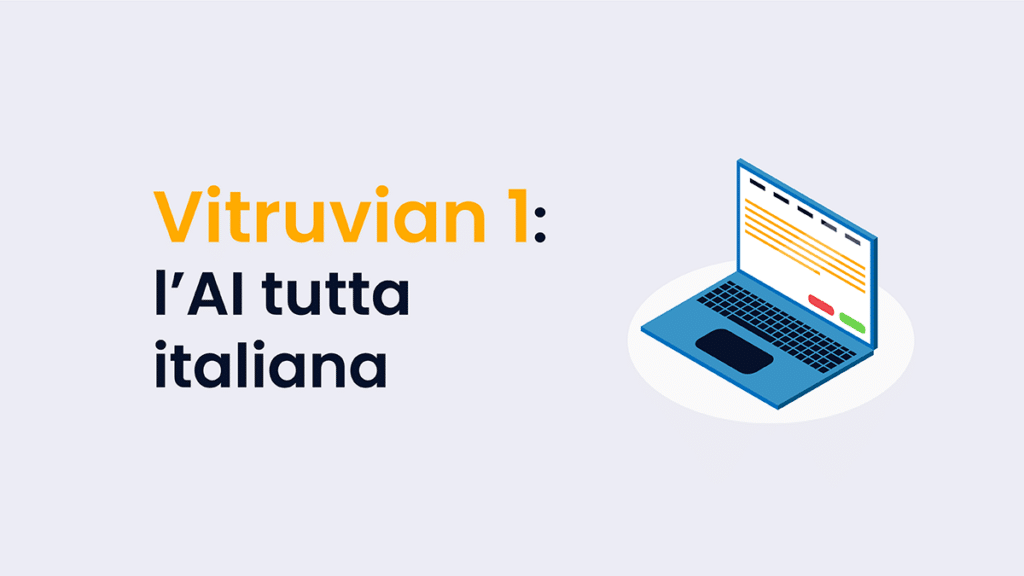Riprendiamo la nostra rassegna con spunti e curiosità sui 4 settori classici dove si applica l’intelligenza artificiale, oggi e domani.
Soprattutto se si è imprenditori che operano nel digitale, anche a livello piccolo, conoscere i campi d’applicazione della tecnologia più in vista e più promettente del momento può dare spunti per direzionarsi. Può essere di ispirazione per trovare la nicchia dove puntare. E, come sappiamo bene, la nicchia ha un potere non da poco.
Ciò che leggerai lo potrai già conoscere o lo puoi avere già immaginato ma non importa: il nostro invito è di seguire questo flusso di informazioni e permettere alle lampadine inconsce di accendersi. Le idee, infatti, hanno percorsi tutt’altro che lineari. Sono più come puzzle composti da pezzi modificabili. Sta a noi dare loro una forma per creare un disegno che indichi qualcosa di riconoscibile, rilevante, universale e utile.

Tutti hanno accesso alle informazioni di base. In pochi sanno come elaborarle in maniera né nozionistica né didascalica.
Cominciamo?
Indice dei contenuti
IA in campo medico sanitario
L’intelligenza artificiale si può applicare in campo medico sanitario e ha il potenziale di trasformare questi settori in molti modi, migliorando l’assistenza ai pazienti, riducendo i costi e rendendo il sistema più efficiente.
Oggi viene applicata in campo diagnostico, nella personalizzazione dei trattamenti e nel monitoraggio a distanza.
- I modelli di apprendimento automatico possono essere utilizzati per identificare malattie utilizzando immagini mediche, come radiografie, scansioni TC e RM. Ad esempio, un modello di intelligenza artificiale sviluppato dall’azienda Google AI è in grado di identificare il cancro del seno con una precisione superiore al 99%.
- L’intelligenza artificiale può essere utilizzata per personalizzare i trattamenti per i pazienti, tenendo conto delle loro caratteristiche individuali. Ad esempio, un modello di sviluppato dall’azienda IBM è in grado di prevedere la risposta dei pazienti ai farmaci anticancro.
- Utilizzando dispositivi indossabili, ad esempio, si possono monitorare i pazienti a distanza. Un modello sviluppato da Apple infatti è in grado di rilevare i sintomi di malattie cardiache e respiratorie.
In futuro, l’intelligenza artificiale si potrebbe utilizzare per sviluppare nuovi farmaci e trattamenti, rendere le operazioni chirurgiche più precise e automatizzare molte delle attività svolte oggi dagli operatori sanitari.
Dove si applica l’intelligenza artificiale in campo finanziario
Dati, gestione del rischio, consigli su decisioni di investimento… vediamo meglio le sfere in campo finanziario dove si può applicare oggi l’intelligenza artificiale:
- Elaborazione di grandi quantità di dati finanziari, ad esempio per identificare le opportunità di investimento o per valutare il rischio di credito.
- Gestione dei rischi finanziari, ad esempio per ridurre la probabilità di perdite finanziarie.
- Consigli su quali azioni acquistare o vendere.
In futuro si potrebbe utilizzare per sviluppare nuovi strumenti, automatizzare le attività di trading e rendere il sistema finanziario più efficiente.
Applicazioni dell’intelligenza artificiale nel settore educativo
L’intelligenza artificiale ha il potenziale di trasformare il settore educativo rendendo l’apprendimento più personalizzato, coinvolgente e accessibile.
- Un sistema sviluppato dall’azienda Knewton è in grado di creare percorsi di apprendimento personalizzati per ogni studente.
- L’IA può fornire feedback agli studenti, ad esempio fornendo loro indicazioni su come migliorare il loro lavoro.
- Correzione automatica di esercizi e fornitura di feedback.
In futuro l’intelligenza artificiale, supportata e monitorata dagli insegnanti, si potrebbe utilizzare per mettere a punto nuovi strumenti didattici.

Logistica, Trasporti e Produzione
Se le applicazioni dell’intelligenza artificiale nei 3 settori visti finora possono essere limitate, discutibili e controverse, qui invece troviamo più definizione. Un terreno più fertile senza implicazioni etiche o complessità critiche.
Scoprirai che dove si applica l’intelligenza artificiale in questo settore assomiglia molto alle dinamiche di un ecommerce e dei relativi software gestionali.
- Ottimizzazione della catena di approvvigionamento: l’intelligenza artificiale si può utilizzare pianificando i percorsi di consegna e ottimizzando la gestione delle scorte.
- Gestione delle flotte di veicoli: automatizzando le attività di carico e scarico e ottimizzando il percorso di consegna.
- Automatizzazione delle attività logistiche: come ad esempio la preparazione degli ordini e la gestione dei magazzini.
- Manutenzione: con strumenti di monitoraggio che indicano quando, dove e come operare.
- Prevenzione dei guasti: identificando i potenziali problemi di manutenzione prima che si verifichino.
- Diagnosi dei problemi: analizzando i dati dei sensori e dei macchinari.
- Automatizzazione delle attività di manutenzione: pianificando gli interventi e la gestione dei ricambi.
- Rilevamento delle minacce: analizzando i dati dei sistemi di sicurezza e delle telecamere di sorveglianza.
- Sviluppo di veicoli autonomi.
- Gestione del traffico e pianificazione di itinerari efficienti.
- Automatizzazione di alcune attività produttive.
- Rilevamento di difetti di produzione.
- Riduzione dei costi di produzione.
Dove si applica l’intelligenza artificiale e come
Abbiamo portato in esame questi 4 settori apposta perché fanno parte della vita di tutti, in un modo o nell’altro. Questo significa che ci dovrebbero interessare. Vuol dire anche che le applicazioni possono avere uno spettro sempre più ampio e che le rielaborazioni più creative e utili sono alla portata di chiunque ci voglia e ci possa rientrare.
In sostanza quindi sta a noi capire cosa vogliamo e cosa non vogliamo. Rimanere informati su questo ci può dare la possibilità di individuare quali sono le possibili implicazioni e quali sono i bisogni e i desideri sia di chi fa parte di questi settori sia di chi fruisce dei loro servizi e prodotti.
Ci rendiamo conto che automatizzare alcuni processi in campo medico o in quello educativo può essere pericoloso. Proprio per questo bisogna sapere che ci sono le possibilità, per cercare di fare in modo che queste automatizzazioni non diventino standardizzazioni dannose.
L’obiettivo è trasformare queste possibilità in delle alleate che migliorino la qualità della vita degli operatori e che allo stesso tempo rendano i meccanismi più efficaci ed efficienti.
